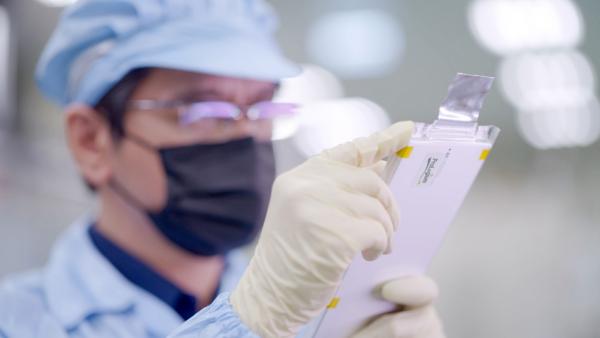Solid-state battery maker ProLogium has signed a technology agreement with vehicle OEM Mercedes-Benz to cooperate on developing next-generation lithium-ion cells.
Batteries co-developed with ProLogium will be introduced into Mercedes-Benz test vehicles and a range of passenger vehicles in the second half of this decade.
ProLogium’s solid-state technology uses a silicon anode, lithium metal anode and bipolar technology.
ProLogium has been working with Mercedes-Benz on testing its EV battery cells since 2016.
Under the agreement, Mercedes-Benz will take a seat on the ProLogium board of directors.
Mercedes-Benz plans to go all electric by 2030, “wherever market conditions allow”.
Markus Schäfer, chief technology officer responsible for development and procurement of Daimler and Mercedes-Benz, said: “Solid-state technology helps to cut down battery size and weight. This is why we are partnering with companies to ensure we continue to break new ground in the automotive sector.”
Last October, October 29, 2021 —ProLogium Technology completed a $326 million financing round to pay for “mass production” facilities.
The funds were going towards expanding its production capacity in Asia, Europe and the US between 2023 and 2025.
Last February, the company signed a MOU with Vinfast to set up a joint venture to produce automotive solid-state battery pack for the latter’s EVs.
The JV will have priority to purchase product and will be licensed to use ProLogium’s patented pack assembly technology to produce battery packs (cell is module/ cell is pack) in Vietnam.
PLG will produce SSB inlays (semi-finished battery cell composed of cathode, solid state electrolyte and anode layer) for the JV at one of its Asian manufacturing centers (expected to reach 1-2 GWh capacity in 2022).












